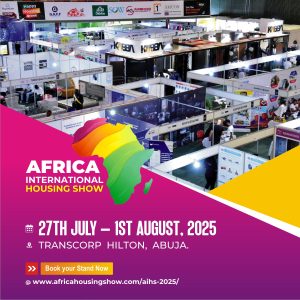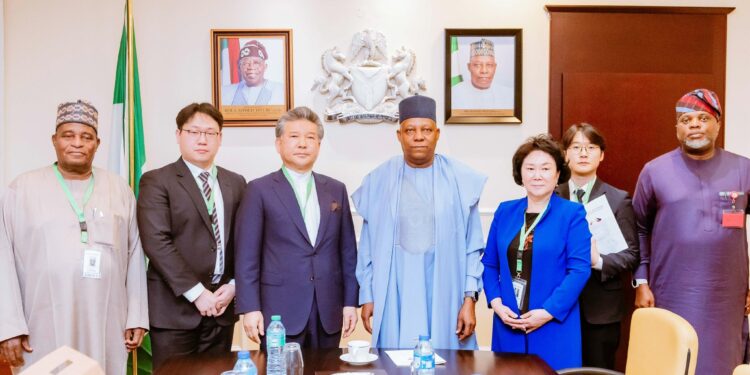Nigeria and South Korea are exploring a strategic partnership aimed at boosting local production of solar equipment and electric vehicles (EVs), as part of efforts to accelerate Nigeria’s industrialisation and green energy transition.
The proposal was made by South Korea’s Asia Economic Development Committee (AEDC) during a high-level visit to the Presidential Villa in Abuja, where the delegation, led by AEDC Chairman Mr. Yoon Suk-hun, was received by Vice President Kashim Shettima.
Welcoming the initiative, Shettima reaffirmed the Tinubu administration’s commitment to fostering technology transfer, renewable energy expansion, and manufacturing growth, stressing that Nigeria is “open to all collaborative arrangements that enhance industrial development and improve citizens’ welfare.”
“We are ready to partner with credible investors to build solar and EV manufacturing capabilities here in Nigeria. It aligns with our vision for sustainable economic growth and self-reliance,” Shettima said.

The AEDC proposal includes plans to invest in solar panel production, EV assembly plants, and digital infrastructure for national security. The committee also indicated a long-term interest in capacity building, pledging to prioritize technology transfer and human capital development over short-term gains.
Yoon highlighted Nigeria’s strategic importance as a regional leader with vast potential in clean energy adoption, noting that South Korea is keen to support forward-thinking leadership in Africa with cutting-edge solutions in mobility, power, and digital security.
More Than Energy
Beyond solar and EVs, the partnership could extend into security technology collaboration, with proposals to support Nigeria’s internal security infrastructure using advanced IT systems.
This comes as Nigeria continues to make strides in clean transport. In March 2025, the Federal Government announced a major electric vehicle transport programme for the North-East, backed by N151.9 billion in funding through the North East Development Commission (NEDC). The initiative includes the deployment of electric buses, tricycles, and charging stations—a key step toward cutting emissions and modernising the public transport system.
What This Could Mean
If actualised, the partnership with AEDC could significantly reduce Nigeria’s dependence on imports for clean energy technologies, while positioning the country as a manufacturing hub for West Africa. It also aligns with global trends toward decarbonisation and green mobility, potentially creating thousands of jobs and bolstering Nigeria’s technical workforce.
The move also reflects Nigeria’s growing efforts to align industrial policy with climate goals, while tapping into foreign partnerships to fast-track innovation and investment.



